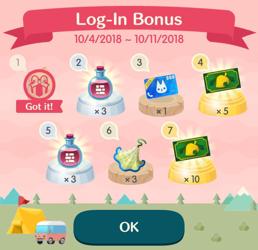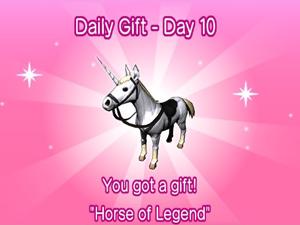How Engagement Rewards Backfire: The Overjustification Effect and the Peak-End Rule
Imagine you’re a kid at a new school deciding where to sit for lunch. Another kid sees you and offers you some candy, saying they have some extra they don’t want. You eagerly accept the candy and sit with the kid. The next day, you run into the same kid and they offer you candy again, explaining that their parents keep packing their lunch with this candy they don’t like. This keeps happening every day - when you sit with this kid at lunch, they give you candy.
Then one day you go to the candy store and see that same kid buying lots of the candy they supposedly don’t like. You realize they are deliberately getting this candy to give to other kids to try to make friends.
What might you say to this kid if you confronted them? Would you explain that their actions are not only clearly manipulative but also counterproductive in the long run - that they may have an easier time making new friends right now, but these people are likely to be put off when they realize what’s going on, even if they had actually enjoyed spending time together? Might you suggest that the kid should focus instead on being genuinely enjoyable to spend time with and seek out people with compatible personalities and shared interests who actually like spending time with them?
This is basically how I feel about games with log-in bonuses.


Some games offer rewards such as in-game currency, consumable items, or cosmetics just for starting the game up. These are generally referred to as “log-in bonuses” and tend to be on a daily schedule - once a day, you can log in to receive a bonus. This is a method for directly rewarding “engagement” - the industry term for user interactions with a property or service. You don’t have to overcome a difficult challenge, grind out resources, or spend currency. You just have to show up. As such, players who want the rewards might well show up at times when they otherwise wouldn’t have. Even on days when they don’t feel like playing, they might launch the game when they have a spare moment to get the reward. And then once the game is running, they might as well play for a while, right? And if they’re playing regularly, they’re more likely to maintain a subscription or make in-app purchases.
That’s the theory, anyway. By rewarding engagement, you increase it along with retention and daily active users and all sorts of important numbers. For free-to-play or subscription-based games, this translates directly into revenue, though log-in bonuses can sometimes be found in premium titles as well.
Log-in bonuses are perhaps the most basic and direct way to reward engagement, but there are others. Some games provide daily rewards but make you work a bit harder for them, as in World of Warcraft’s daily quests. Others make use of energy systems or similar timers to encourage players to return frequently on a schedule that can change over time (often the early-game timers will be seconds or minutes long and later ones may span multiple days). Still others incentivize play during certain days via seasonal events or during certain hours by limiting the availability of particular content or mechanics. Some games create social obligation to pressure players to help out their friends by playing more. There are endless possible variations, and of course there’s no reason a game must limit itself to just one.
Whatever the approach, engagement rewards have a common effect: if they are working, then by definition players are launching or playing the game at times when they otherwise wouldn’t. Game developers frequently run experiments to maximize engagement and will try to make rewards as effective as possible - otherwise, why bother with them at all? And that means working to make sure players are launching or playing games even when they have no real desire to do so.
If a player is busy, has had their fill of a particular game for now, isn’t in the mood for its kind of gameplay, doesn’t usually game on weekdays, or for whatever other reason normally wouldn’t even consider playing a game but fires it up for the engagement rewards - in that moment, the game has ceased to be a fun diversion. It has become a transaction. Playing it is now a chore. This can’t help but erode players’ interest in and affection for the game and make it that much harder for the game to go back to being desirable entertainment even if the player stops caring about the engagement rewards.
It’s well-known that extrinsic rewards can diminish the value of intrinsic ones. Psychologists refer to the overjustification effect in which a task with inherent appeal (such as playing a fun game) becomes devalued by the addition of external rewards (such as log-in bonuses). According to cognitive evaluation theory, the way the rewards are presented matters a lot: the effect is much worse if the external rewards are perceived as manipulative instead of informational. If a reward is clearly designed to control a person’s behavior, then that person’s actions unavoidably become either compliance or defiance - either way, the motivation is from an external source. Meanwhile, rewards that instead provide information about how well a person has completed a task are essentially performance-based feedback allowing that person to modify their actions as appropriate. Motivation is still internal; the reward just shines a light on it.
In games, this means that rewarding a player for a skilled performance can improve intrinsic motivation - for example, giving players scores and medals after action set-pieces can make it more appealing to improve the relevant skills. But rewarding a player for completing a trivial action can worsen intrinsic motivation by framing that action as a hoop the game wants the player to jump through. And engagement rewards are specifically designed to reward trivial actions, with the most trivial possible being starting the game at all to get a log-in bonus.


So if engagement rewards are working and are getting people to play games more, they are doing so in a way that gives the player a chore and externalizes the player’s motivation. Every time a player takes a break from playing a game for the fun of it but keeps engaging for the rewards, it becomes that much less likely they’ll want to play for fun again later. And once the inherent appeal of playing the game drops low enough, the engagement rewards cease to have any value at all. Why collect currency and items for a game you don’t even want to play? For me - and I bet for most players - my final interactions with a game whose engagement rewards worked are just rote reward collection with no real enjoyment and increasing annoyance, until I finally get sick enough of it to put the game down for good.
This may not seem like a terrible problem - after all, if the player liked the game they probably had a lot of fun with it before trailing off like that. The player got what they came for. They could easily still be a fan who recommends the game to others and comes back for the sequel, right?
Well, here’s the thing. Our memories of how things end have a huge effect on our opinion on their overall quality. Human memory seems to operate on what’s known as the peak-end rule - when looking back on an experience, we judge it not by adding up its pleasures and subtracting its pains, but by considering only its most intense moment and how it ended. Several studies back this up - when people are subjected to two similar unpleasant experiences such that one is objectively worse than the other but ends better (such as submerging a hand in painfully cold water for a full minute, versus doing the exact same thing but keeping the hand in the water for an additional thirty seconds during which it is slightly less cold), they would rather repeat the worse experience.
How you feel at the end of an experience makes a big difference on you feel about the entire experience in hindsight. Even outside of studies, this makes intuitive sense - most of us have had pleasant experiences that felt ruined by how they ended.
“He said he’d been listening to a symphony, and it was absolutely glorious music and at the very end of the recording, there was a dreadful screeching sound. And then he added, really quite emotionally, it ruined the whole experience. But it hadn’t. What it had ruined were the memories of the experience. He had had the experience. He had had 20 minutes of glorious music. They counted for nothing because he was left with a memory; the memory was ruined, and the memory was all that he had gotten to keep.”
—Daniel Kahneman, The riddle of experience vs. memory
If the worst part of an experience is at the end - which it will be for a game if your final interactions with it are an unpleasant chore - that can easily dominate your judgment of that experience. Even if you have hours of fun with a game, if it ends with a sour taste that’s how you’re going to remember it. You won’t think of it as the game that you enjoyed for the first dozen hours; you’ll think of it as the game that became obnoxious and unpleasant at the end.
Engagement rewards don’t work on every player. But they confer no benefit for the players they don’t work on, and for the players they do work on, they damage the experience. It’s a nasty thing for a game to do to a player - especially in exchange for the player doing exactly what the game wanted them to do. And such a player is much less likely to recommend the game to others or show interest in sequels.
In our increasingly online and metrics-driven gaming landscape, it’s easy to see why developers and publishers would want to make use of engagement rewards. They increase valuable easy-to-measure metrics which often drive short-term revenue. But it’s hard to measure the cost paid in long-term fan investment and loyalty. It’s hard to get clear numbers on how a player feels about a game or a developer, or whether they’re talking about the game to their friends, or whether they’re a return customer for sequels or other games by the same developer. But just because these numbers aren’t easy to track doesn’t mean they don’t matter. A game that gets someone to play it every day for a month but then drives that player away may make more money from that player, but it’s not going to make as much from that player’s friends and the sequel won’t make money from them either.
Developers who directly reward engagement are acting on the same desperate short-sightedness as the kid with the candy, pumping up visible short-term numbers at the cost of invisible long-term numbers. Because the numbers are invisible, developers can’t see the downsides coming - and I can’t actually prove they happen or that they outweigh the rewards. But if I’m right, these developers are tarnishing their brands and weakening their bottom lines. And as a player, which game do you want to play? The one that uses experience-damaging handouts to manipulate your behavior and schedule, or the one that respects your time and self-determination and will leave you with better memories?
It’s time for lunch. Where do you want to sit?